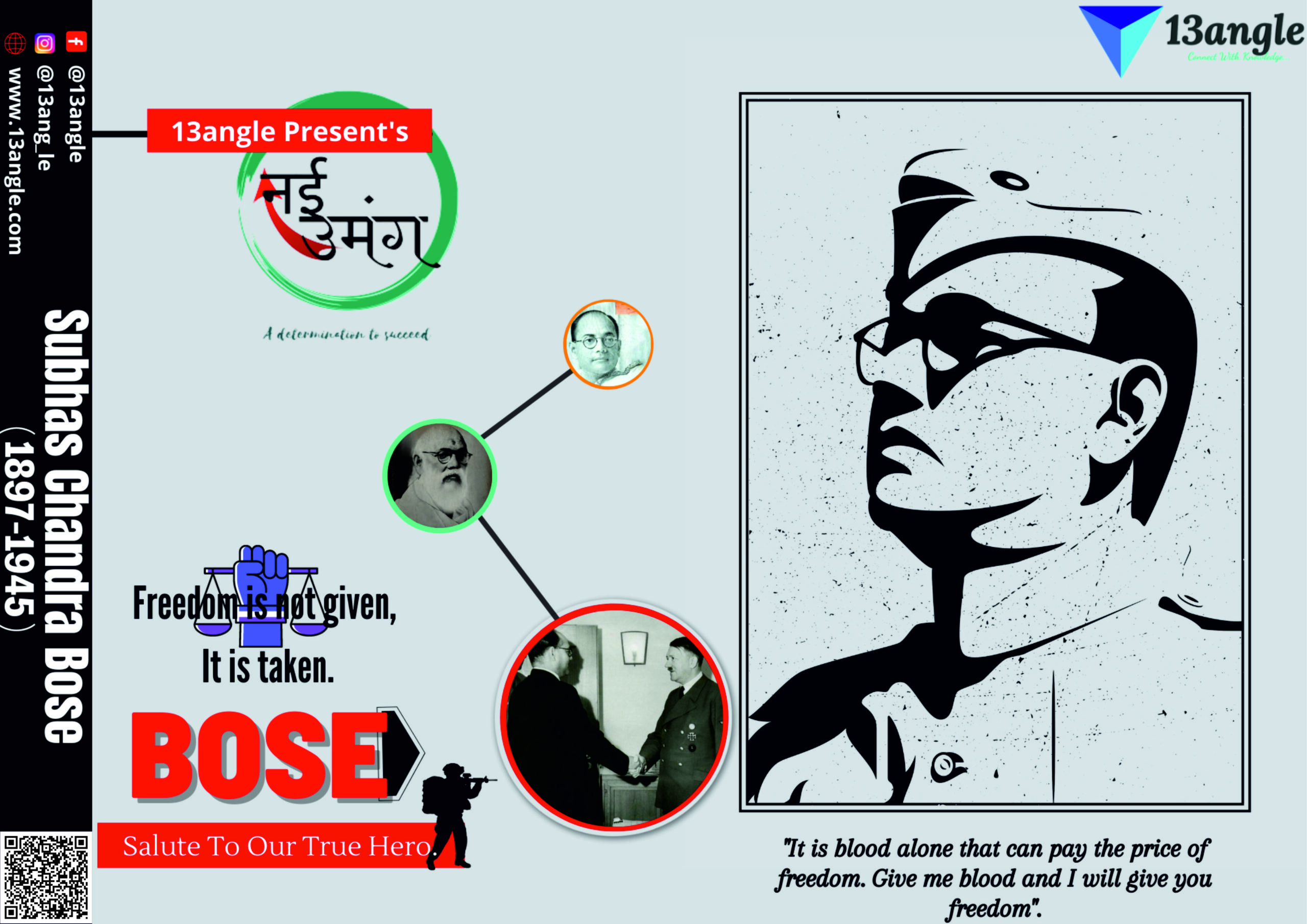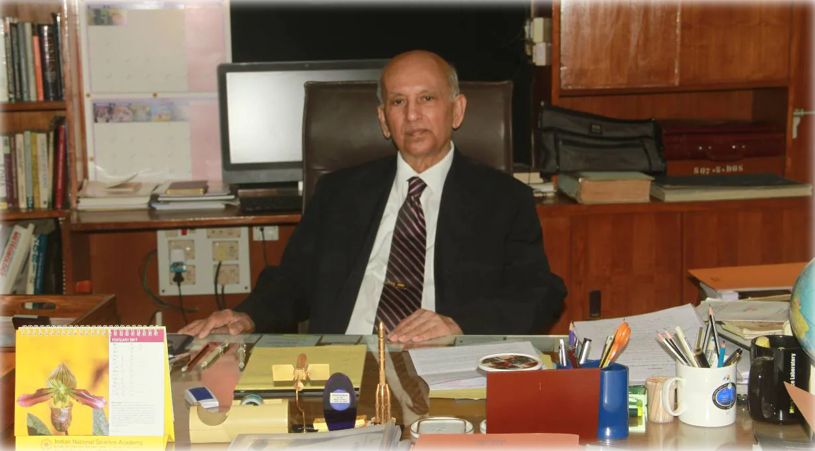
| Name | Udupi Ramachandra Rao |
| Spouse Name | Yashoda Rao |
| Father Name | Lakshminarayana Acharya |
| Mother’s Name | Krishnaveni Amma |
| Born Place | Adamaru, South Canara district, Madras Presidency, British India (present-day Adamaru, Udupi district, Karnataka, India) |
| Date of Birth | 10 March 1932 |
| Died | 24 July 2017 (aged 85) Bengaluru, Karnataka, India |
| Education | BSc, MSc, PhD |
| Alma Mater | Secondary Education from Christian High School, Udupi, Madras University (BSc), Banaras Hindu University (MSc), Gujarat University (PhD) |
| Doctoral Advisor | Vikram Sarabhai |
| National Awards | Padma Bhushan (1976), Padma Vibhushan (2017) |
| Fields | Space Science and Satellite Technology |
| Known For | Indian Space Program |
| Institution | Indian Space Research Organisation, Physical Research Laboratory Jawaharlal Nehru Planetarium, Bengaluru |
| Known As | Satellite Man of India |
Introduction
“Success is not the key to happiness. Happiness is the key to success. If you love what you are doing, you will be successful.” – Albert Schweitzer
In the vastness of the cosmos, there emerged a brilliant star whose achievements and contributions lit up the skies of Indian space science, inspiring generations to come. Udupi Ramachandra Rao, fondly known as “The Satellite Man of India,” was a trailblazing scientist and visionary leader who left an indelible mark on the realm of space technology.
Born on 10th March 1932, Prof. Rao’s journey commenced with an unwavering passion for unraveling the mysteries of the universe. He soared through academia, gaining invaluable experience as a faculty member at MIT and an assistant professor at the University of Texas at Dallas. Yet, his heart yearned to return to his motherland, and in 1966, he embraced the call of destiny, becoming a professor at the Physical Research Laboratory, Ahmedabad.
Convinced that space technology was a gateway to progress, Prof. Rao embarked on a mission to establish satellite technology in India. In 1975, under his guidance, India’s first satellite, ‘Aryabhata,’ was launched, heralding a new era of communication, remote sensing, and meteorological services with over 18 subsequent satellites gracing the skies.
Ascending to greater heights, Prof. Rao assumed the role of Chairman of the Space Commission and Secretary of the Department of Space in 1984. He propelled the development of rocket technology, leading to the triumph of the ASLV and PSLV launch vehicles, and pioneering the GSLV and cryogenic technology in 1991.
But his brilliance extended far beyond engineering prowess. Prof. Rao’s intellectual prowess found expression in over 350 scientific and technical papers, covering cosmic rays, interplanetary physics, high-energy astronomy, satellite and rocket technology, and more. His thirst for knowledge knew no bounds, and he was honored with a D.Sc. (Hon. Causa) Degree from over 21 esteemed universities, including the University of Bologna, the oldest university in Europe.
Prof. Rao’s genius and dedication did not go unnoticed. The government of India bestowed upon him the prestigious Padma Bhushan in 1976 and Padma Vibhushan in 2017, recognizing his invaluable contributions to the nation. Furthermore, the international community applauded his achievements, inducting him into the Satellite Hall of Fame and the IAF Hall of Fame, making him the first Indian to receive such prestigious accolades.
Yet, beyond the accolades and achievements, Prof. Rao’s legacy lies in his role as an institution builder and a guiding force for the Indian space program. Alongside Dr. Vikram Sarabhai and Prof. Satish Dhawan, he fostered a vision and mission-focused approach that aligned the organization’s goals with national development. His leadership cultivated a culture of professionalism, mutual respect, and team spirit, creating what is now cherished as the revered ‘ISRO culture.’
The satellite man’s impact stretched far beyond technology; his profound ability to connect with his team, coupled with his enthusiasm and tenacity, earned him the respect and admiration of all who worked alongside him. His personal touch, with each member of the organization cherishing unique stories and experiences with him, exemplified the qualities of a true leader.
In every aspect of his life, Prof. U.R. Rao epitomized the spirit of success, finding happiness in pursuing his passions and channeling his love for space science into extraordinary achievements. Today, we stand in awe of his legacy, grateful for the self-reliance in satellite technology that he bestowed upon our nation, and lovingly call him the ‘Father of Indian Satellite Programme.’
His life’s journey continues to inspire and ignite passion and excellence in the hearts of countless dreamers and doers. As we delve into the life and times of this remarkable scientist, we are reminded that greatness is not a destination but a state of being, where dedication, love, and happiness converge to unlock the doors of boundless success.
Early Life And Education
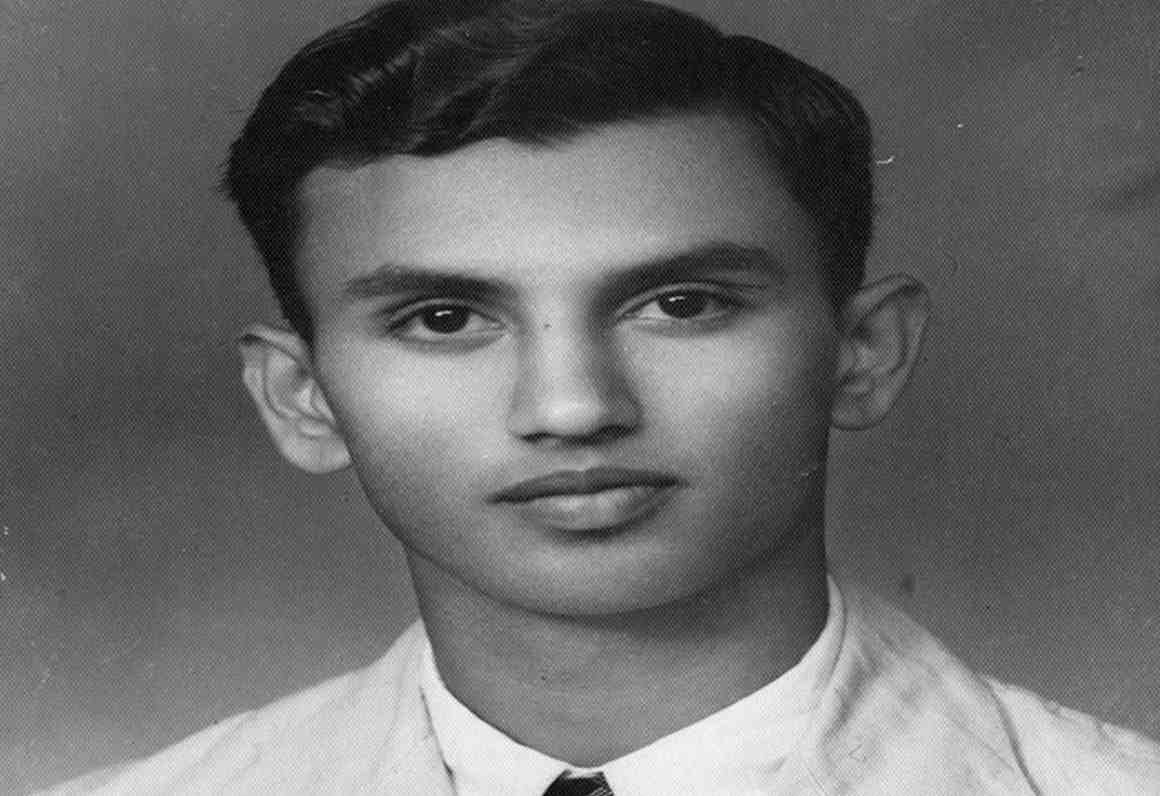
In the quaint village of Adamaru, nestled in the picturesque state of Karnataka, a star was born into a Madhwa Brahmin Hindu family on 10th March 1932. Little did anyone know that this young boy would one day shine brightly in the firmament of space science and become an inspiration to millions. This prodigious young mind was none other than Udupi Ramachandra Rao, affectionately known as U.R. Rao.
From the very outset, it was evident that young U.R. Rao possessed an insatiable curiosity for the world around him. His parents, Lakshminarayana Acharya and Krishnaveni Amma, recognized his thirst for knowledge and nurtured it with unwavering support. His journey into education began at the local school in Adamaru, where he imbibed the values of hard work and determination that would become his guiding principles throughout life.
As he completed his secondary education, it became apparent that the young scholar was destined for greatness. He continued his academic pursuits at the esteemed Christian High School in Udupi, where he honed his intellectual abilities and laid the foundation for his future achievements.
The pursuit of knowledge knew no boundaries for U.R. Rao, and he soon set his sights on higher education. His dreams led him to Government Arts and Science College, Anantpur, where he completed his B.Sc. from Madras University in 1951. Undeterred by challenges, he ventured further and earned his M.Sc. from Banaras Hindu University in 1953, cementing his expertise in the realms of science.
Yet, the young scholar’s thirst for knowledge was far from quenched. Driven by a desire to explore the uncharted realms of space, U.R. Rao embarked on a monumental journey towards his Ph.D. Under the esteemed guidance of the visionary scientist, Vikram Sarabhai, he delved into the intricacies of space research at the Physical Research Laboratory, Gujarat University. This period of his life marked a turning point, shaping his future trajectory and igniting his passion for space exploration.
In the vast expanse of the cosmos, a brilliant young mind was honing his skills and preparing to take flight. U.R. Rao’s early life stands as a testament to the power of determination, the support of family, and the pursuit of knowledge. The seeds of curiosity sown in Adamaru would blossom into a legacy of scientific excellence that would change the face of space exploration forever.
As we journey further into the life of U.R. Rao, we are reminded that every great achievement is built upon a strong foundation laid by a young, curious mind. The story of his early life echoes the age-old adage that greatness can emerge from the humblest beginnings. U.R. Rao’s brilliance, dedication, and relentless pursuit of knowledge continue to inspire us to dream big, reach for the stars, and find our own paths to illuminate the world with our passions and aspirations.
Career
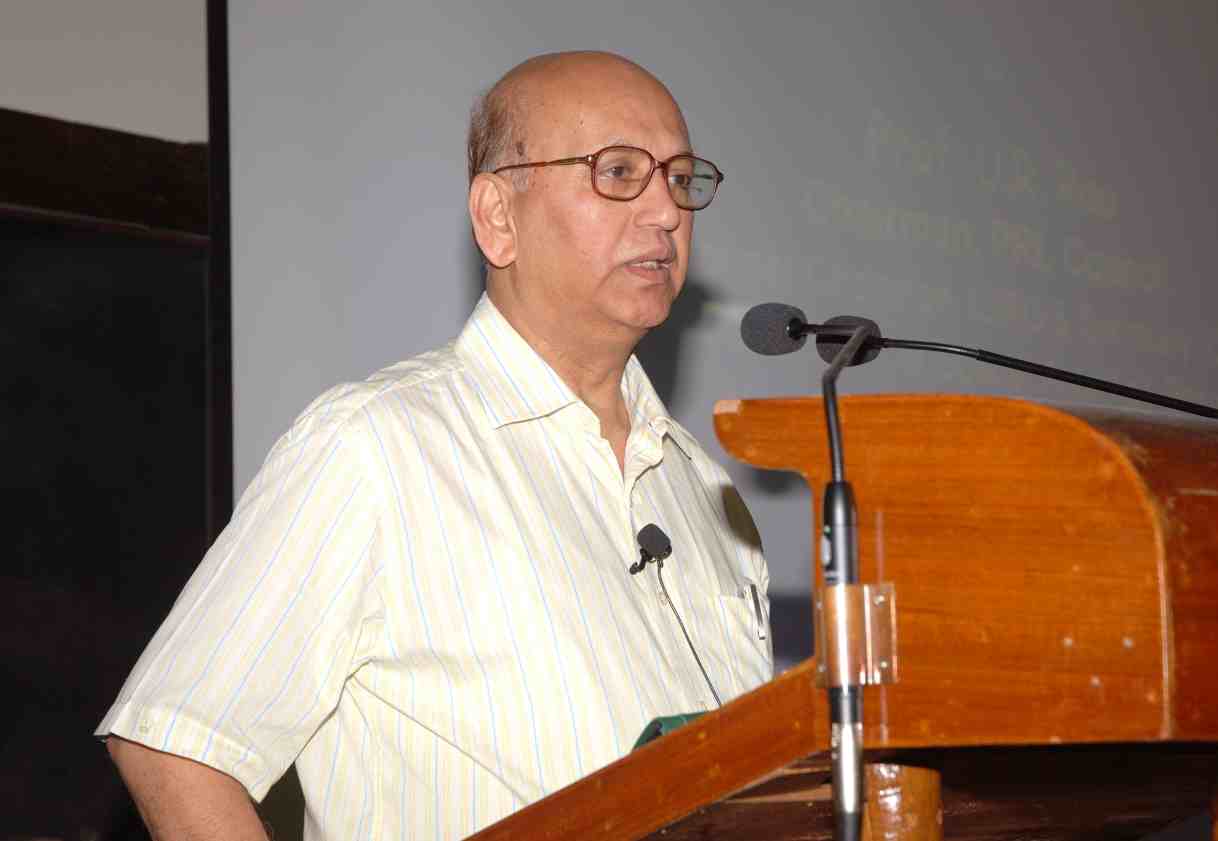
The illustrious career of Prof. U.R. Rao reads like a mesmerizing odyssey through the frontiers of space exploration and scientific excellence. From the hallowed halls of MIT to the venerated Indian Space Research Organisation (ISRO), his journey stands as a testament to unwavering dedication and unyielding commitment to the pursuit of knowledge.
After completing his post-doctoral work at the prestigious MIT and serving as an Assistant Professor at the University of Texas at Dallas, Prof. Rao’s passion for cosmic rays led him to the revered Dr. Vikram Sarabhai’s tutelage. Embracing the wisdom of his mentor, he embarked on ground-breaking research, working in association with the Jet Propulsion Laboratory group. His discoveries, including establishing the continuous nature of the solar wind and its effect on geomagnetism using Mariner 2 observations, earned him acclaim in the scientific community.
In 1966, Prof. Rao returned to his homeland, India, with an unwavering determination to harness space technology for the nation’s rapid development. This marked the beginning of an extraordinary chapter in the annals of Indian space science. As the Director of the U R Rao Satellite Centre in Bangalore from 1972 to 1985, he laid the foundation for India’s satellite program, setting it on a trajectory toward unparalleled success.
Under his visionary guidance, India achieved numerous milestones in space exploration. The launch of the first Indian satellite, ‘Aryabhata,’ in 1975 marked a historic moment for the country. Prof. Rao’s leadership paved the way for the design, fabrication, and launch of over 18 satellites, including the Bhaskara, APPLE, Rohini, INSAT, and IRS series, enabling communication, remote sensing, and meteorological services.
As Chairman of the Indian Space Research Organisation and Secretary of the Department of Space from 1984 to 1994, Prof. Rao’s indomitable spirit accelerated India’s rocket technology. The successful launch of the ASLV rocket in 1992 and the operational PSLV launch vehicle further solidified India’s position in the global space arena.
But his legacy extended beyond national borders. Prof. Rao held prestigious positions worldwide, including Vice President of the International Astronautical Federation (IAF), Chairman of the United Nations Committee on Peaceful Uses of Outer Space (UN-COPUOS), and Chairman of the 30th International Antarctic Treaty Consultative Committee Meeting. His leadership and expertise garnered international recognition, making him a recipient of various esteemed awards and honors.
A prolific author and avid researcher, Prof. Rao’s contributions extended to over 300 scientific and technical papers, exploring diverse facets of space science. His books, including “Space and Agenda 21” and “Space Technology for Sustainable Development,” offered profound insights into the potential of space exploration for humanity’s benefit.
With countless accolades to his name, including the Padma Bhushan and Padma Vibhushan from the Government of India, Prof. U.R. Rao became a guiding light, inspiring generations of scientists and dreamers to reach for the stars. The “Satellite Hall of Fame” and the “Von Karman Award” recognized his extraordinary achievements, solidifying his place among the pantheon of global space pioneers.
In every phase of his career, Prof. Rao’s dedication and unwavering commitment to advancing the frontiers of space science have left an indelible impact on the world. As we delve into the story of his remarkable career, we find ourselves drawn to the brilliance of a man who dared to dream big, who believed in the boundless potential of space, and who transformed those dreams into reality. Prof. U.R. Rao’s career stands as an ode to the power of passion, perseverance, and the pursuit of knowledge, forever inspiring us to set our sights high and embrace the infinite possibilities that await us in the vastness of space.
His Tenure As Chairman Of The Indian Space Research Organisation (ISRO)
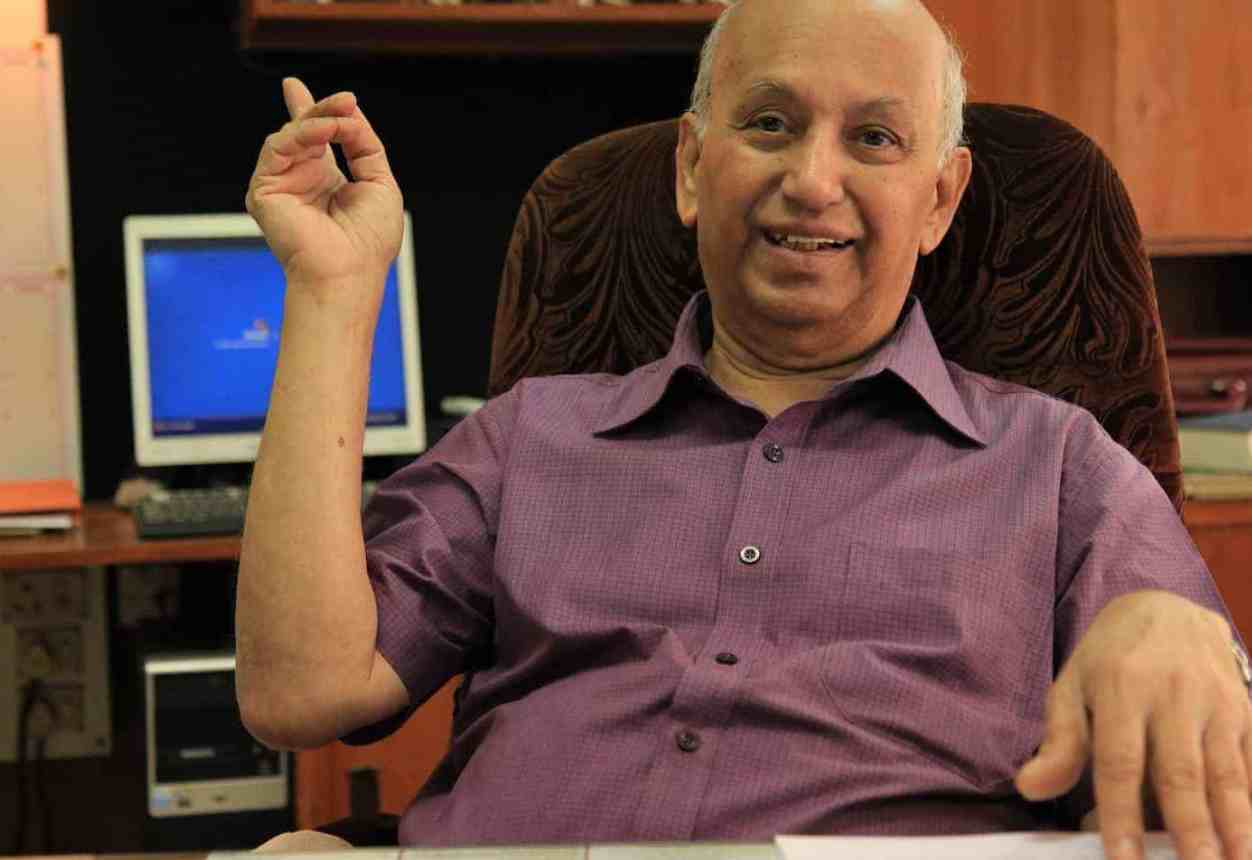
During his illustrious tenure as Chairman of the Indian Space Research Organisation (ISRO) and Secretary of the Department of Space, Prof. U.R. Rao left an indelible mark on India’s space program. His visionary leadership, relentless pursuit of excellence, and unwavering determination propelled India to new heights in the field of rocket technology and satellite launches.
As Chairman, Prof. Rao embarked on a mission to accelerate the development of rocket technology, igniting the flames of innovation and progress. His strategic vision led to the triumphant launch of the Augmented Satellite Launch Vehicle (ASLV) in 1992, marking a significant milestone in India’s space journey. This feat not only showcased India’s prowess in rocketry but also instilled a sense of pride and inspiration in the hearts of every Indian.
But he did not stop there. Prof. Rao set his sights on even greater achievements, steering the development of the Polar Satellite Launch Vehicle (PSLV). In 1995, the PSLV carried an 850 kg satellite into a polar orbit, a momentous achievement that cemented India’s position as a spacefaring nation on the global stage. With each successful launch, Prof. Rao’s conviction in India’s potential to reach greater heights grew stronger.
Ever the visionary, Prof. Rao understood the importance of geostationary orbits for communication satellites. Under his guidance, the development of the Geosynchronous Satellite Launch Vehicle (GSLV) was initiated, further enhancing India’s capabilities in satellite launches. In addition, his foresight led to the development of cryogenic technology, a crucial milestone in space exploration.
One of the hallmarks of Prof. Rao’s chairmanship was the successful launch of the Indian National Satellite (INSAT) series. These satellites played a pivotal role in revolutionizing telecommunications in India. With INSAT’s telecommunication links, remote corners of the nation were seamlessly connected, transcending geographical barriers and fostering a sense of unity among diverse communities. The advent of STD (Subscriber Trunk Dialling) made communication accessible to all, empowering individuals to connect with loved ones and conduct business with ease.
As an inspirational leader, Prof. Rao played a key role in shaping India’s journey as an Information Technology hub. His vision for the future saws the integration of space technology with various sectors, laying the groundwork for India’s technological advancement and economic growth.
Beyond his remarkable accomplishments, Prof. Rao’s contributions to space exploration earned him international recognition. He became the first Indian Space Scientist to be inducted into the prestigious “Satellite Hall of Fame” at Washington DC, USA in 2013, a testament to his global impact and trailblazing spirit.
Throughout his tenure, Prof. U.R. Rao’s leadership exemplified the power of determination, collaboration, and innovation. His legacy continues to inspire generations of scientists, engineers, and dreamers across the nation. Prof. Rao’s remarkable journey reminds us that with unwavering dedication and a pioneering spirit, we can transcend boundaries, touch the stars, and shape a future of limitless possibilities for India and beyond.
Positions He Held During His Journey
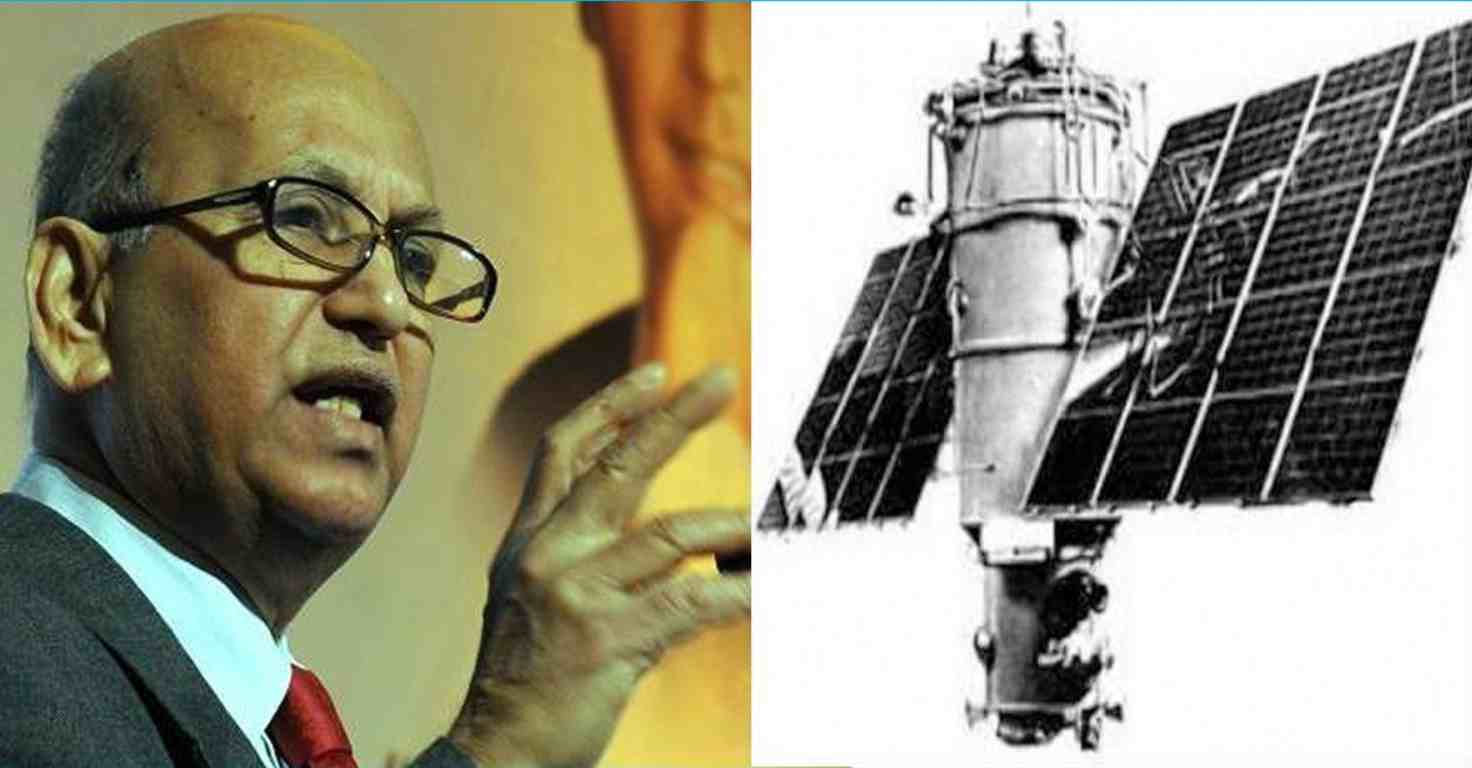
Throughout his illustrious career, Prof. U.R. Rao held a myriad of prestigious positions, each contributing to his remarkable legacy as a trailblazing space scientist and visionary leader.
Here are the positions he held during his journey:-
- 1988 – Chairman, PRL Council, ISRO-DOS.
- 2005 – Chairman, Karnataka Science & Technology Academy.
- 2007 – Additional Director, Bharatiya Reserve Bank Note Mudran Pvt. Ltd., Bangalore.
- Chairman, Governing Council of Indian Institute of Tropical Meteorology, Pune.
- President, Centre for Space Physics, Kolkata (2006 – 2011).
- Chancellor, Babasaheb Bhimrao Ambedkar University, Lucknow (2006 – 2010).
- Member, Central Board of Directors, Reserve Bank of India (2006 – 2010).
- Co-Chairman, Governing Council of National Center for Antarctic & Ocean Research, Goa (1997).
- Member, Prasar Bharati Board (2001).
- Chairman, United Nations – Committee on Peaceful Uses of Outer Space (UN-COPUOS) (2000).
- Chairman, Space Commission/Secretary, Department of Space, Government of India & Chairman, Indian Space Research Organisation (ISRO), Bangalore (1984 – 1994).
- Member, Space Commission, Government of India (1981 – 2001).
- Chairman, Prasar Bharati Board (2001 – 2002).
- Member, Prasar Bharati Board (1997 – 2001).
- Member, National Security Advisory Board (1998 – 2001).
- Chairman, United Nations – Committee on Peaceful Uses of Outer Space (UN-COPUOS) (1997 – 2000).
- Director, ISRO Satellite Centre, Bangalore (1975 – 1984).
- Vikram Sarabhai Distinguished Professor of the Department of Space (1975 – 1984).
- Project Director, Indian Scientific Satellite Project, Bangalore (1972 – 1975).
- Professor, Physical Research Laboratory, Ahmedabad (1969 – 1972).
- Associate Professor, Physical Research Laboratory, Ahmedabad (1966 – 1969).
- Assistant Professor at S.W. Centre for Advanced Research, Dallas, Texas (1963 – 1966).
- Post-Doctoral Fellow at MIT, USA (1961 – 1963).
These diverse roles exemplify Prof. U.R. Rao’s multifaceted contributions to the fields of space science, technology, and academia. As he took on each responsibility, he left an indelible mark, guiding and shaping the course of India’s space program and the global space community. His leadership and expertise extended far beyond national borders, as he spearheaded significant initiatives in various international organizations and advisory boards, solidifying his reputation as a respected and revered figure in the world of space exploration.
Awards

The life of Prof. U.R. Rao was adorned with a constellation of awards and accolades, each shining brightly like a guiding star in the night sky. His unwavering dedication, pioneering spirit, and ground-breaking achievements were recognized and celebrated not only in his homeland of India but also on the international stage. Let us explore the galaxy of awards that adorned the illustrious path of this visionary space scientist:
In India, he received:
- 1976 Padma Bhushan: This prestigious award, the third-highest civilian award in India, honored Prof. Rao for his significant contributions to space science and technology.
- 2017 Padma Vibhushan: The second-highest civilian award in India, bestowed upon him for his unparalleled service to the nation and his remarkable achievements in the realm of space exploration.
- Karnataka Rajyotsava Award (1975, 1983): The recognition of his outstanding contributions to Karnataka and its advancement in science and technology.
- Hari Om Vikram Sarabhai Award (1975): Named after the legendary Dr. Vikram Sarabhai, this award symbolized Prof. Rao’s exceptional dedication to the field of space science, following in the footsteps of his mentor.
- Shanti Swarup Bhatnagar Award (1975): One of the most prestigious scientific awards in India, honoring his extraordinary research and advancements in the field of space technology.
- National Design Award (1980): Recognizing his instrumental role in the design and development of satellite technology that revolutionized India’s space program.
- Vasvik Research Award (1980): Celebrating his significant contributions to research and development in the field of space exploration.
- PC Mahalnobis Medal (1987): Bestowed in acknowledgment of his exceptional scientific contributions, elevating India’s status in the realm of space technology.
In addition to these national honours, Prof. U.R. Rao’s brilliance and vision were revered across the globe, as reflected in the following international awards:
- Yuri Gagarin Medal of USSR (1991): A symbol of global recognition, this award celebrated Prof. Rao’s contributions to space exploration on an international level.
- Frank J Malina Award (1994): Conferred by the International Astronautical Federation, this accolade applauded his remarkable achievements in the realm of space science.
- Theodore Von Karman Award (2005): The highest award bestowed by the International Academy of Astronautics, acknowledging Prof. Rao’s outstanding contributions to the advancement of space exploration.
- The Satellite Hall of Fame (2013, 2016): Prof. Rao made history as the first Indian Space Scientist to be inducted into this highly prestigious Hall of Fame in Washington DC and Guadalajara, Mexico, respectively, commemorating his significant global impact.
- Allan D Emil Award on International Cooperation (1992), “Outstanding Book Award” of the International Academy of Astronautics (1997), and other international honours further exemplified his worldwide recognition.
Amidst the galaxy of awards, Prof. U.R. Rao’s journey was fuelled not merely by accolades but by his relentless pursuit of knowledge, the quest for excellence, and unwavering commitment to the progress of science and humanity. His life’s trajectory continues to inspire and motivate generations of aspiring scientists and leaders to reach for the stars, guided by the belief that with determination and ingenuity, they too can make a lasting impact on the world and beyond. Prof. U.R. Rao’s legacy will forever shine as a beacon of hope, inspiring future explorers to chart new paths and reach new heights in the unexplored frontiers of space and human endeavour.
Honours

Prof. U.R. Rao’s journey of recognition and honour stretched far beyond the boundaries of his homeland. His relentless pursuit of excellence and unwavering commitment to the advancement of science and technology earned him prestigious awards and honorary doctorates from esteemed institutions worldwide. Let us delve into the galaxy of honours that adorned his illustrious path:
In addition to the national and international awards we have already celebrated, Prof. U.R. Rao’s dedication and accomplishments were recognized by numerous esteemed universities, which bestowed upon him honorary doctorates, recognizing his exceptional contributions to the field of space exploration:
- Litt. (Hon. Causa) from Kannada University, Hampi: His home state, Karnataka, proudly recognized his achievements and contributions to the field of science and technology.
- Sc (Hons. Causa) from a constellation of esteemed universities:
- Mysore University (1976): A recognition of his ground-breaking work in space technology and its applications.
- Rahuri University (1976): Acknowledging his significant role in advancing India’s space program.
- Calcutta University (1981): Celebrating his exceptional contributions to scientific research and technological innovations.
- Mangalore University (1984): Honouring his visionary leadership in the field of space exploration.
- Banaras University (1992): Recognizing his invaluable contributions to space science and its applications.
- Udaipur University (1992): Commemorating his extraordinary achievements in space research and technology.
- University of Bologna, Italy (1992): An international recognition of his global impact and contributions to space research.
- Tirupati (SV) University (1993): Celebrating his pioneering work in satellite technology and its impact on communications.
- Hyderabad (JN) University (1994): Honouring his ground-breaking research in space and satellite technology.
- Madras (Anna University) (1994): Recognizing his leadership in advancing India’s space capabilities.
- Roorkee University (1994): Acknowledging his unparalleled contributions to the field of space exploration.
- Punjabi University (1995): Commemorating his transformative work in space science and its applications.
- Shri Shahu Ji Maharaj University (1997): Celebrating his visionary leadership in space research and technology.
- Patiala Kanpur University (1997): Honouring his pioneering role in advancing satellite technology in India.
- Indian School of Mines, Dhanbad (1999): Recognizing his significant contributions to the development of space technology.
- Charan Singh University, Meerut (2002): Celebrating his exceptional achievements in space research and technology.
- UP Technical University, Lucknow (2005): Honouring his visionary leadership in the field of space exploration.
- Visvesvaraiah Technical University, Belgaum (2006): Commemorating his invaluable contributions to the advancement of science and technology.
- Indian Institute of Technology – Delhi (2007): Recognizing his pioneering work in space technology and its applications.
- D.Y. Patil Vidyapeeth, Pune (2010): Honouring his exceptional contributions to space science and technology.
- National Institute of Technology, Agartala (2012): Celebrating his visionary leadership in space research and technology.
- Bangalore University (2013): Recognizing his ground-breaking work in the field of space exploration.
- Indian Institute of Technology – Bhubaneswar (2013): Honouring his significant contributions to the development of space technology.
- Vijayanagara Sri Krishnadevaraya University, Bellary (2014): Commemorating his unparalleled achievements in space science and its applications.
- On March 10, 2021, a Google Doodle was made in honour of his 89th birthday
The celestial trail of honours bestowed upon Prof. U.R. Rao serves as a testament to his profound impact on the world of science and technology. His vision, determination, and dedication continue to inspire and guide countless aspiring scientists and leaders, reminding them that with passion, perseverance, and a commitment to excellence, they too can reach for the stars and leave an indelible mark on the universe. Prof. U.R. Rao’s legacy shines as a guiding light, inspiring generations to dream big, defy boundaries, and journey into the realms of the unknown, fueled by the belief that the human spirit, when ignited by knowledge and passion, can propel us to incredible heights, both on Earth and beyond the horizon of the cosmos.
Fellowships or Memberships
The illustrious career of Prof. U.R. Rao, like a magnificent tapestry, was woven with the threads of knowledge, innovation, and a relentless pursuit of excellence. His journey was adorned with numerous fellowships from esteemed institutions, each representing a celestial recognition of his exceptional contributions to the world of science and technology. Let us embark on a voyage through the constellations of fellowships that illuminated his path:
- Fellow of the Indian Academy of Sciences: This prestigious fellowship celebrated Prof. U.R. Rao’s remarkable contributions to scientific research and his pioneering work in space exploration. It was a testament to his intellectual brilliance and visionary leadership.
- Fellow of the Indian National Science Academy: This distinguished fellowship recognized Prof. U.R. Rao’s profound impact on the scientific community and his transformative role in advancing India’s space program. It symbolized his dedication to pushing the boundaries of human knowledge.
- Fellow of the National Science Academy: This fellowship shone a beacon of light on Prof. U.R. Rao’s significant contributions to the field of science and his trailblazing research in space technology. It exemplified his commitment to pushing the frontiers of exploration.
- Fellow of the Third World Academy of Sciences: Prof. U.R. Rao’s global influence and contributions to science earned him this prestigious fellowship. It exemplified his dedication to fostering international collaborations and promoting scientific cooperation.
- Fellow of the International Academy of Astronautics: This distinguished fellowship recognized Prof. U.R. Rao’s pioneering work in the field of astronautics and his role in shaping India’s space endeavours. It symbolized his dedication to exploring the cosmos and unlocking its mysteries.
- Fellow of the Indian National Academy of Engineering: This esteemed fellowship celebrated Prof. U.R. Rao’s profound impact on engineering and his visionary leadership in advancing space technology. It exemplified his commitment to using technology for the betterment of humanity.
- Fellow of the Astronautical Society of India: As a fellow of this esteemed society, Prof. U.R. Rao’s contributions to the field of astronautics were recognized and celebrated. It symbolized his passion for space exploration and his dedication to nurturing future generations of space scientists.
- Fellow of the Aeronautical Society: This honorary fellowship celebrated Prof. U.R. Rao’s contributions to aeronautics and his pioneering research in aerospace engineering. It exemplified his commitment to pushing the boundaries of flight and exploration.
- Distinguished Fellow Institution of Electronics and Telecommunication Engineers: This distinguished fellowship celebrated Prof. U.R. Rao’s transformative role in advancing electronics and telecommunication engineering. It exemplified his dedication to using technology for societal progress.
- Fellow of the Indian National Cartographic Association: This honorary fellowship celebrated Prof. U.R. Rao’s contributions to cartography and his use of spatial data for scientific research. It symbolized his commitment to mapping the unexplored territories of knowledge.
- Fellow of the Broadcasting and Engineering Society of India: As a fellow of this esteemed society, Prof. U.R. Rao’s pioneering contributions to broadcasting and engineering were recognized and celebrated. It symbolized his dedication to using communication technology to connect the world.
- Fellow Aero Medical Society of India: This honorary fellowship celebrated Prof. U.R. Rao’s contributions to aerospace medicine and his work in promoting human well-being in space exploration. It exemplified his commitment to the welfare of astronauts and space travellers.
- Distinguished Fellow of Physical Research Laboratory, Ahmedabad: This distinguished fellowship celebrated Prof. U.R. Rao’s exceptional contributions to the Physical Research Laboratory and his visionary leadership in advancing scientific research. It symbolized his dedication to the pursuit of knowledge.
- Fellow of the World Academy of Arts & Sciences, USA: This prestigious international fellowship recognized Prof. U.R. Rao’s global impact on science and his tireless efforts to advance the frontiers of human knowledge. It exemplified his commitment to using science for the greater good of humanity.
These fellowships, like radiant stars in the firmament of scientific excellence, continue to inspire and guide aspiring scientists and leaders, reminding them that with passion, dedication, and a quest for knowledge, they too can shine brightly in the cosmos of discovery. Prof. U.R. Rao’s legacy remains a guiding light, inspiring generations to dream big, defy boundaries, and explore the uncharted territories of the universe, for it is through the pursuit of knowledge and the spirit of exploration that humanity can ascend to greater heights and unravel the mysteries of the cosmos.
His Remarkable Professional Activities Internationally
Prof. U.R. Rao’s professional journey has been akin to a grand expedition, exploring the boundless frontiers of space and using the power of knowledge to uplift humanity. Through his tireless efforts and visionary leadership, he has left an indelible mark on the world of space exploration and scientific diplomacy. Let us traverse the constellations of his remarkable professional activities:
- Vice President, International Astronautical Federation (1986-1992): Prof. U.R. Rao’s appointment as Vice President of the International Astronautical Federation (IAF) exemplified his global influence and expertise in the field of astronautics. He diligently worked towards fostering international collaborations and advancing the peaceful use of outer space for the betterment of humanity.
- President, Committee for Liaison with Developing Nations (CLODIN) of IAF (1988 to date): As the President of CLODIN, Prof. U.R. Rao took upon himself the noble responsibility of promoting the use of space technology to aid developing nations. His unwavering dedication to bridging the technological divide inspired nations to come together for the collective progress of humankind.
- Chairman, UN-COPUOS (United Nations – Committee on Peaceful Uses of Outer Space) (1997-2000): Prof. U.R. Rao’s appointment as Chairman of UN-COPUOS was a testament to his diplomatic acumen and commitment to utilizing space technology for peaceful purposes. He led efforts to foster global cooperation and ensure equitable access to the benefits of space exploration.
- President, UNISPACE-III Conference (1999): Prof. U.R. Rao’s presidency of the UNISPACE-III Conference showcased his visionary leadership in shaping global policies for the peaceful use of outer space. His emphasis on sustainable development and capacity-building resonated with the international community.
- Chairman, 30th International Antarctic Treaty Consultative Committee Meeting (2007): Prof. U.R. Rao’s chairmanship of this crucial meeting emphasized his dedication to promoting international cooperation in polar research and scientific exploration. His leadership fostered collaboration among nations to address challenges in Antarctica.
- Organized Special Plenary Current Event Sessions as a part of the International Astronautical Federation Congress: Prof. U.R. Rao’s commitment to knowledge dissemination and innovation led him to organize special sessions that brought together experts from various fields to discuss contemporary challenges and opportunities in space exploration.
- Director – Summer Design Project on “Space for Enhancing Human Health” for the International Space University (ISU) at Pomona, California (2002): Prof. U.R. Rao’s role as Director of this project showcased his commitment to exploring the potential of space technology for advancing human health and well-being.
- Published over 360 Scientific and Technical papers in various Journals: Prof. U.R. Rao’s prolific contributions to scientific literature reflect his insatiable thirst for knowledge and his dedication to sharing his expertise with the global scientific community.
Through his professional activities, Prof. U.R. Rao has not only contributed significantly to the field of space exploration but has also exemplified the power of diplomacy and cooperation in advancing the cause of science for the greater good of humanity. His unwavering commitment to utilizing space technology for sustainable development continues to inspire future generations of scientists and leaders to reach for the stars and create a brighter and more equitable future for all. As we gaze at the constellation of his achievements, we are reminded that the pursuit of knowledge knows no boundaries, and through collaboration and determination, we can transcend the limitations of the unknown and bring the cosmos within our reach.
Author Of The Three Books
Prof. U.R. Rao’s literary journey is as awe-inspiring as his contributions to the realm of space exploration. Through his insightful and visionary works, he has traversed the realms of communications, sustainability, and our collective responsibility to care for Planet Earth. Let’s explore the books authored by this distinguished scholar:
“Perspectives in Communications” (1987): In this captivating book, co-authored with K. Kasturirangan, K. R. Sridhara Murthi, and Surendra Pal, Prof. U.R. Rao delves into the fascinating world of communications. With a keen eye on the future, the book explores the ever-evolving landscape of communication technologies and their impact on society. Through insightful perspectives, readers are enlightened about the transformative power of communication in connecting people, fostering understanding, and driving progress. Prof. Rao’s collaboration with esteemed co-authors is a testament to the spirit of teamwork and collective wisdom in unraveling the mysteries of the communication universe.
“Space and Agenda 21 – Caring for Planet Earth” (1995): In this masterpiece of environmental consciousness, Prof. U.R. Rao takes readers on a profound exploration of humanity’s responsibility to cherish and protect Planet Earth. Drawing inspiration from the United Nations’ Agenda 21, he shines a spotlight on the interplay between space technology and sustainable development. The book serves as a clarion call to safeguard our precious planet for future generations, emphasizing the vital role of space technology in monitoring and preserving our natural resources. Prof. Rao’s profound insights ignite a sense of purpose and ignite a collective desire to safeguard the splendor of our blue planet.
“Space Technology for Sustainable Development” (1996): In this visionary work, Prof. U.R. Rao pens a roadmap to a brighter future for humankind. The book serves as a guiding light, illuminating the path toward sustainable development through the wise application of space technology. Prof. Rao’s words resonate with hope and optimism, urging readers to harness the potential of space exploration for the betterment of society. The book inspires us to look beyond the horizon and embrace innovation to forge a harmonious coexistence with nature. As readers immerse themselves in these transformative pages, they are empowered to play an active role in shaping a sustainable and inclusive future.
Through his literary masterpieces, Prof. U.R. Rao showcases not only his expertise in the domains of space technology and communications but also his deep sense of responsibility towards humanity and the environment. His words echo with the spirit of collaboration, innovation, and compassion, leaving an indelible mark on readers’ hearts and minds. As we embark on this literary expedition, we are reminded of the power of knowledge to inspire change and to kindle the flame of curiosity that propels us to explore the uncharted territories of human potential. Prof. Rao’s books serve as beacons of wisdom, guiding us on a transformative journey of enlightenment, empowerment, and sustainable progress.
Lessons From The Visionary Legend U.R. Rao
In the journey of life, there are exceptional individuals who inspire and pave the way for generations to come. U.R. Rao, a visionary legend in the field of space research and technology, is one such trailblazer whose life and achievements hold invaluable lessons for today’s youth. From his humble beginnings in a small village in India to becoming a globally recognized space scientist, his story is a testament to the power of determination, passion, and unwavering commitment to a greater cause. Here are some inspiring lessons that today’s youth can learn from the life of this remarkable visionary:
- Embrace Your Roots: U.R. Rao’s journey began in a small village, but he never forgot his roots. His early education in a simple environment laid the foundation for his future achievements. No matter where you come from, embrace your heritage, and let it fuel your aspirations.
- Pursue Excellence: From an early age, Rao displayed an insatiable thirst for knowledge. He excelled in his studies, which eventually led him to pursue a career in cosmic ray research and space technology. Strive for excellence in whatever you do and never stop learning.
- Aim High: Rao dared to dream big. He was not content with the ordinary; he aspired to reach the stars. The lesson here is to set ambitious goals and work relentlessly to achieve them.
- Overcome Adversity: Rao faced challenges and setbacks in his journey, but he never allowed them to deter him. Instead, he used them as stepping stones to success. Remember, it’s not about the obstacles you encounter but how you overcome them that defines you.
- Be Persistent: Success rarely comes overnight. It took years of hard work, research, and dedication for Rao to become the pioneer of India’s space program. Stay persistent, even in the face of failure, and you will eventually reap the rewards.
- Use Technology for the Greater Good: Rao’s vision was not limited to space exploration alone; he understood the importance of using space technology for the betterment of society. Learn to harness technology to address pressing issues and make a positive impact on the world around you.
- Foster Innovation: As the Chairman of the Indian Space Research Organisation (ISRO), Rao championed innovation and the development of indigenous technology. Encourage creativity and out-of-the-box thinking to drive progress.
- Serve Humanity: Rao’s work was not just about space missions; it was about using space technology to improve the lives of people. Find ways to contribute to the welfare of others and make a meaningful difference in society.
- Lead with Integrity: Throughout his career, Rao displayed impeccable integrity and a strong moral compass. As future leaders embrace ethical practices and lead with honesty and transparency.
- Collaborate and Build Alliances: Rao understood the importance of international collaboration and partnerships in the field of space research. Work together with others to achieve common goals and leverage collective knowledge and resources.
- Never Stop Exploring: Even after achieving remarkable success, Rao continued to explore and innovate. Stay curious and never stop seeking new opportunities for growth and discovery.
- Leave a Legacy: Rao’s contributions to the field of space research and technology will be remembered for generations. Think about the legacy you want to leave behind and strive to create a lasting impact in the world.
- Believe in Yourself: Above all, U.R. Rao’s life teaches us to believe in ourselves and our potential to make a difference. No dream is too big, and with unwavering self-belief, anything is achievable.
Conclusion
In the journey of life, we often come across individuals who leave an indelible mark on the world through their extraordinary achievements and unwavering dedication. One such exceptional soul was U.R. Rao, a visionary space scientist whose life and work continue to inspire generations to reach for the stars and make a meaningful impact on society.
U.R. Rao’s early years were marked by a thirst for knowledge and a passion for exploring the unknown. He fearlessly pursued his dreams, seizing every opportunity to learn and grow. From his humble beginnings in a small town to the corridors of prestigious institutions, Rao’s unwavering determination proved that greatness knows no bounds.
As he embarked on his journey in the realm of cosmic ray research, Rao’s curiosity and brilliance led to ground-breaking discoveries that paved the way for future space exploration. His relentless pursuit of knowledge and understanding of solar wind and geomagnetism not only enriched the field of science but also instilled a sense of wonder about the mysteries of the universe.
Taking charge as the Chairman of the Space Commission and Secretary of the Department of Space in 1985, Rao spearheaded India’s space program with unparalleled zeal. His leadership brought about remarkable advancements in rocket technology, leading to the successful launch of ASLV, PSLV, and GSLV. The launch of the INSAT series revolutionized communications in India, connecting even the remotest corners of the country and propelling India’s growth as an IT hub.
Beyond his technical contributions, Rao’s infectious enthusiasm and collaborative spirit brought people together from diverse backgrounds and nations. His active participation in international conferences and engagements showcased the power of cooperation and the universality of knowledge in propelling global progress.
Throughout his illustrious career, U.R. Rao exemplified the essence of innovation, perseverance, and empathy. His life journey serves as a beacon of hope, inspiring countless individuals to chase their dreams and embrace challenges with courage and determination.
We can all draw inspiration from Rao’s unwavering commitment to the betterment of society. Like him, let us seek knowledge relentlessly, break barriers fearlessly, and uplift others selflessly. As we face the challenges of our time, let us remember that innovation and collaboration know no boundaries.
Rao’s legacy reminds us that we are all capable of creating positive change in the world, regardless of our background or circumstances. Let us strive to make a difference, not just for ourselves but for the greater good of humanity.
In the spirit of U.R. Rao’s pioneering work and visionary leadership, let us reach for the stars and embrace the infinite possibilities that lie ahead. Together, we can create a world where knowledge is shared, boundaries are transcended, and the human spirit soars to new heights.
As we continue to explore the cosmos and push the boundaries of human understanding, may the life and legacy of U.R. Rao serve as a guiding light, inspiring us to never stop dreaming, learning, and contributing to the greater good of humanity.
Top 13 Facts About Udupi Ramachandra Rao
R. Rao, born on March 10, 1932, into a Madhwa Brahmin Hindu family in Adamaru, Udupi, India, had a humble beginning that laid the foundation for his extraordinary achievements.
He received his primary education in Adamaru and completed his secondary education at Christian High School, Udupi.
His academic journey led him to pursue higher studies, earning a B.Sc. from Government Arts and Science College, Anantapur, M.Sc. from Banaras Hindu University, and a Ph.D. from Physical Research Laboratory, Gujarat University, under the guidance of the eminent scientist Vikram Sarabhai.
Rao’s association with Dr. Vikram Sarabhai continued during his post-doctoral stint at MIT and as an Assistant Professor at the University of Texas at Dallas, where he conducted ground-breaking research on Pioneer and Explorer spacecraft.
In 1966, he returned to India as a professor at the Physical Research Laboratory, Ahmedabad, to work alongside his mentor, Dr. Vikram Sarabhai.
One of his early accomplishments was establishing the continuous nature of the solar wind and its effect on geomagnetism through Mariner 2 observations, a ground-breaking discovery in cosmic ray science.
Rao played a pivotal role in the establishment of satellite technology in India, starting with the launch of the first Indian satellite, “Aryabhata,” in 1975, followed by numerous other satellites for communication, remote sensing, and meteorological services.
He held significant positions, including Director of U R Rao Satellite Centre at Bangalore, Chairman of the Indian Space Research Organisation (ISRO) Secretary of the Department of Space, and Chairman of Antrix Corporation.
His visionary leadership led to the successful development and launch of the Augmented Satellite Launch Vehicle (ASLV) in 1992, showcasing India’s rocket technology prowess.
Rao initiated the development of the Polar Satellite Launch Vehicle (PSLV) and the Geosynchronous Satellite Launch Vehicle (GSLV), further solidifying India’s position in the space arena.
Under his chairmanship, the launch of the Indian National Satellite (INSAT) series revolutionized telecommunications in India, providing connectivity to even the remotest corners of the nation.
His global recognition and contributions to space exploration earned him numerous prestigious awards, including the Padma Bhushan and Padma Vibhushan from the Government of India, as well as international honors such as the Yuri Gagarin Medal and the Frank J Malina Award.
U.R. Rao’s remarkable journey from a small town in India to becoming a pioneer in space exploration stands as an inspiration to countless individuals worldwide, emphasizing the power of determination, innovation, and the pursuit of knowledge. His legacy continues to motivate future generations to reach for the stars and make a meaningful impact in the world.
Frequently Asked Questions And Answers (FAQs)
Udupi Ramachandra Rao, commonly known as U.R. Rao, was a renowned Indian space scientist and pioneer in space exploration. He was born on March 10, 1932, in Adamaru, Udupi, India.
U.R. Rao’s early accomplishments include completing his education at various prestigious institutions, including Government Arts and Science College, Anantapur, Banaras Hindu University, and Physical Research Laboratory, Gujarat University.
Prof. U.R. Rao played a vital role in establishing satellite technology in India. He led the development and launch of numerous satellites, including “Aryabhata” and the INSAT series, which revolutionized telecommunications and remote sensing capabilities in India.
Prof. U.R. Rao held various leadership positions, such as the Chairman of Indian Space Research Organisation (ISRO) and Secretary of the Department of Space. He was also the Director of U R Rao Satellite Centre at Bangalore and Chairman of Antrix Corporation.
One of U.R. Rao’s notable achievements was establishing the continuous nature of the solar wind and its effect on geomagnetism through Mariner 2 observations, making significant contributions to cosmic ray science.
U.R. Rao received numerous awards and honours, including the Padma Bhushan and Padma Vibhushan from the Government of India, Yuri Gagarin Medal, Frank J Malina Award, and Vikram Sarabhai Medal.
Prof. U.R. Rao’s visionary leadership and pioneering work significantly advanced India’s space program. His contributions led to the successful development and launch of rockets like ASLV, PSLV, and GSLV, strengthening India’s position in the global space arena.
The launch of the INSAT series, under U.R. Rao’s leadership, transformed telecommunications in India by providing connectivity to even the remotest areas, thus facilitating rapid development and technological progress.
U.R. Rao’s legacy is that of an inspiring and pioneering space scientist who left a lasting impact on India’s space program. His contributions continue to motivate and guide future generations of scientists and engineers.
U.R. Rao’s relentless pursuit of knowledge, visionary leadership, and dedication to space exploration inspired countless individuals in India and around the world. His work serves as a testament to the power of innovation and the potential of space technology to benefit humanity.
U.R. Rao authored several books on space communications and sustainable development, providing valuable insights and knowledge to the scientific community. His works continue to be relevant and influential in the field of space exploration and development.
U.R. Rao actively participated in numerous international conferences, including those organized by the International Astronautical Federation (IAF), where he discussed various aspects of space technology and its applications for sustainable development and human welfare.
U.R. Rao’s life journey, starting from a small town in India and rising to international prominence in space exploration, stands as an inspiration to all aspiring scientists and engineers. His determination, passion, and commitment to serving humanity continue to inspire individuals to dream big and make a positive impact in their respective fields.



